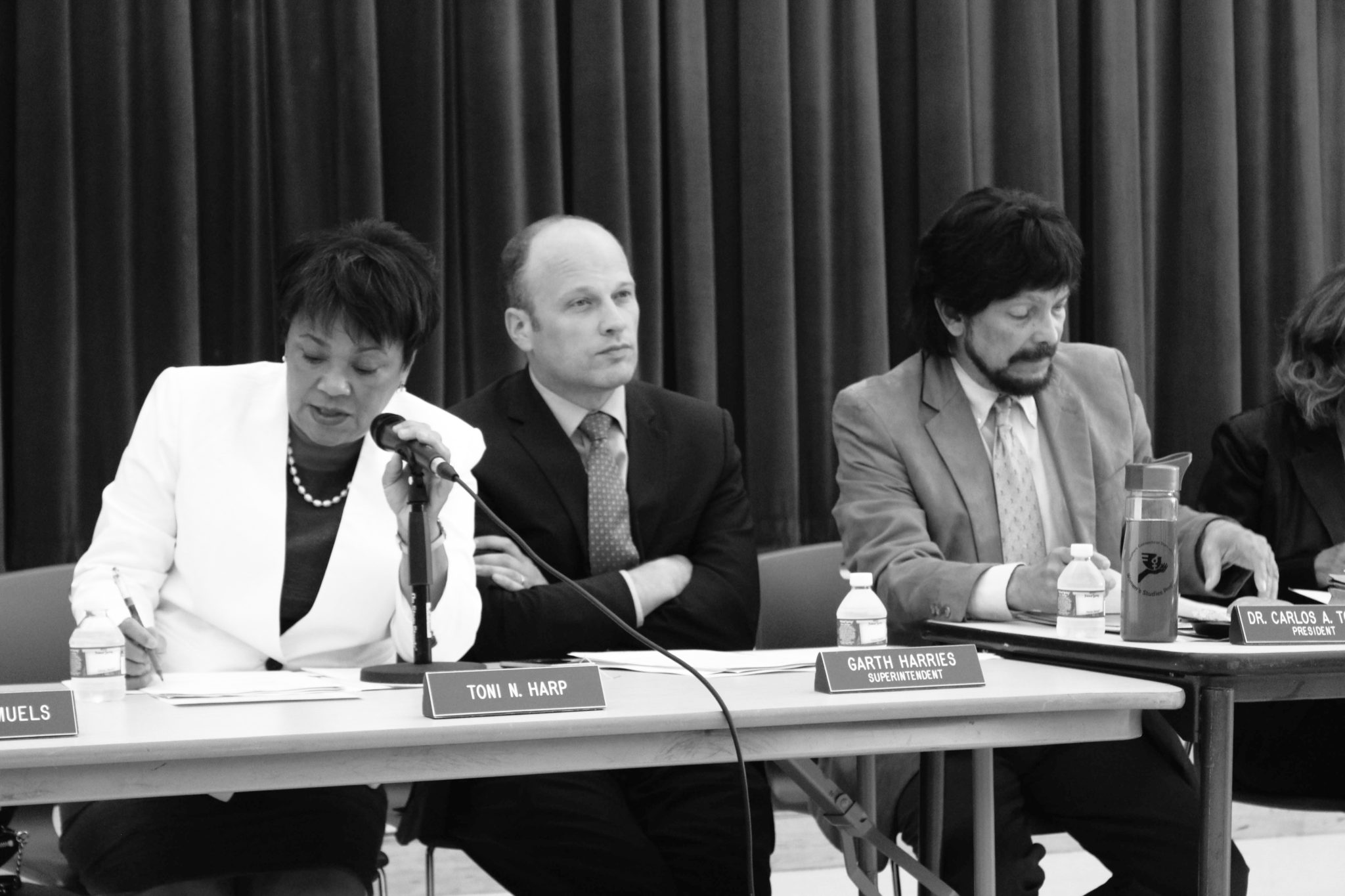
The New Haven Board of Education confirmed its new chief operating officer and heard public testimonies at its bi-monthly meeting on Monday.
Recently, The Board of Education has faced personnel shifts. Last month, Board Vice President Jamell Cotto failed to receive re-approval by the city’s Board of Alders for a new term. And since the departure of William Clark in January, the district has been operating without a COO. At Monday’s meeting, while no updates about Cotto’s replacement were discussed, the Board approved Superintendent of New Haven Public Schools Carol Birks’ nomination of Michael Pinto for COO.
“We’re happy he is part of our New Haven team already,” said Birks at the meeting. “And he is quite familiar and committed to New Haven. He lived in New Haven, he attended New Haven Public Schools for his primary years, he went on to undergraduate school and obtained a law degree … he has vast experiences in private practices.”
On Jan. 22, the New Haven Board of Alders denied Cotto another term on the Board after members of community group New Haven Public Schools Advocates listed various complaints about Cotto’s competence in office. Criticisms included a lack of communication with parents, chronic absence from meetings and a conflict of interest due to Cotto’s position as CEO of the youth nonprofit the Farnam Community — which contracts with the Board.
During the meeting, several parents and one student presented their thoughts to the Board, highlighting the Board’s strengths and weaknesses that they had discussed with one another prior to the meeting. While the attendees approved of the presence of four elected board members, their list of what “needs improvement” extended further, listing concerns such as the exclusion of the public from major decisions, a need for cultural understanding and a lack of Board’s members with educational backgrounds.
“What perspectives, experiences, and expertise would we like to see on the Board of Ed?” read NHPS parent Daniel Juarez from a list of suggestions. “We need better conflict resolution, better transparency, a growth mindset, civil discourse.”
Experience in education has been a recurring theme in parent-Board relations of late — of the six voting Board members, only Ed Joyner has an educational background. Near the conclusion of the meeting, the Board voted to approve Birks’ choice of Attorney Michael Pinto for the new district COO. Despite a lack of strictly educational work, Pinto has served as the deputy director of the New Haven Department of Transportation, Traffic and Parking. According to Birks, Pinto will begin work sometime in March.
Birks also brought several presenters before the Board, who addressed issues related to the public’s complaints like transparency and inclusion of parents and students in Board decisions. One presentation dealt with the quality of the NHPS teacher evaluation process, which is required for every teacher by Connecticut law. Board member Tamika Jackson-MacArthur’s raised concerns that parents’ opinions of teachers were not included in the evaluation process.
Conversation then shifted to different issues within NHPS, especially regarding the high rates of suspensions among certain student populations.
According to NHPS Director of Student Services Typhanie Jackson, public schools under the Obama administration benefited from more federal guidance regarding the disproportionate amount of black males subject to suspensions during school, a problem that, according to the presentation, runs rampant in NHPS.
In New Haven, there are three major groups of public school students by race and ethnicity — 36 percent identify as black, 46 percent identify as Latinx and 13 percent identify as white as of the 2018–2019 school year. In the last academic semester, black students composed 60 percent of all suspensions, compared to Latinx students at 32 percent and white students at 7 percent. While other data from the presentation proved that suspensions as a whole are at their lowest levels in the past five years, Jackson added that providing a positive and interconnected school environment is key to ensuring students feel welcome and not alienated by their school environment.
“It’s not easy. It’s not easy to be a parent, it’s not easy to be a teacher. It’s not easy to be an administrator,” said Jackson. “We need, not only our schools and our parents, but also our community providers and agencies to really wrap around our folks.”
NHPS moved from 86 suspensions in the 2012–2013 school year to 23 in 2017–2018.
Valerie Pavilonis | valerie.pavilonis@yale.edu







